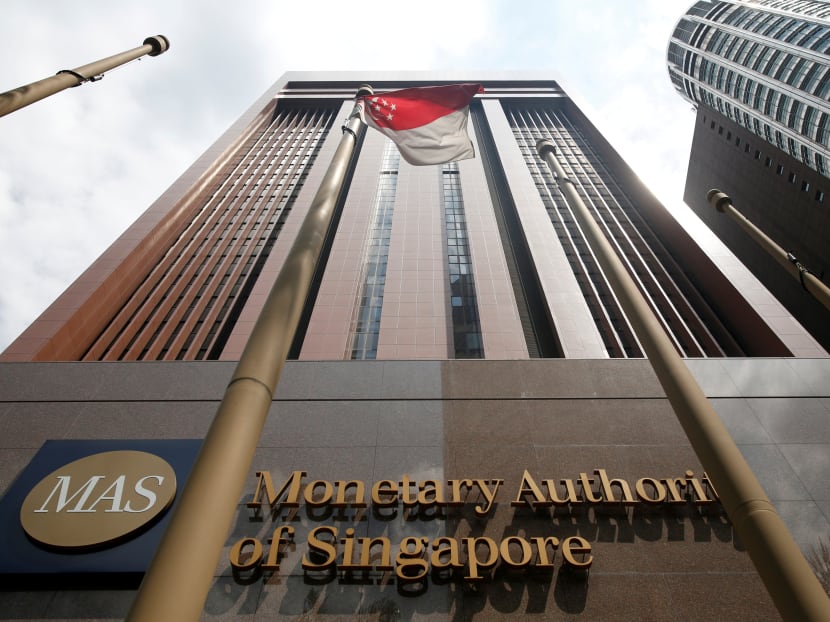Economists expect S’pore economy to contract 7.6% in Q3 but grow 5.5% in 2021: MAS survey
SINGAPORE — Economists have revised upwards their projection for Singapore’s economy next year, with a survey showing that on average, they expect growth of 5.5 per cent in 2021, the Monetary Authority of Singapore (MAS) said on Monday (Sept 7).

Overall, the 28 economists who responded to the MAS survey gave economic growth forecasts of between 4 per cent and 5.9 per cent for 2021.
- Economists expect the economy to contract by 6 per cent this year
- This is a downward revision from their previous forecast of a 5.8 per cent decline
- This is due to the prolonged uncertainty brought by the Covid-19 pandemic
- The “low base” in 2020 will lead to higher comparative growth next year, they say
SINGAPORE — Economists have revised upwards their projection for Singapore’s economy next year, with a survey showing that on average, they expect growth of 5.5 per cent in 2021, the Monetary Authority of Singapore (MAS) said on Monday (Sept 7).
This is higher than the 4.8 per cent growth for 2021 that they had forecast when last surveyed in June.
Overall, the 26 economists who responded to the MAS survey gave economic growth forecasts of between 4 per cent and 5.9 per cent for 2021.
But while they have revised next year’s forecast upwards, they are slightly more pessimistic about this year.
They expect the economy to contract by 6 per cent as a whole this year. In June, they had forecast a 5.8 per cent decline for the whole year.
CIMB Private Banking economist Song Seng Wun said that the slight decline is due to the prolonged uncertainty brought by the Covid-19 pandemic.
“We are taking baby steps as we reopen, it’s difficult to forecast with great certainty given we are still not sure about the pace and how broad is the easing in terms of the measures.”
He added that for the travel and construction industries in particular, the pace of recovery is not as quick as expected, extinguishing economists’ earlier hopes of a speedier recovery. “The recovery is not quite as fast as businesses would like,” he added.
According to the MAS survey, the prediction of a 6 per cent contraction in the economy this year is largely due to sharper contractions predicted in two badly-battered industries — economists forecast the construction sector to decline by 23 per cent, and the accommodation and food services sector to contract by 29.1 per cent this year.
In the previous survey in June, they had predicted declines of 11.4 per cent and 26 per cent for both sectors respectively.
Ms Selena Ling, OCBC Bank's head of treasury research and strategy, said that the downward revisions in the forecast for the construction sector is due mainly to manpower constraints.
“We have started to see cases re-emerge in some of the foreign worker dormitories, and we have a situation where the MCO (movement control order) in Malaysia just got extended to the end of the year,” she said.
“It’s a combination of the manpower situation having not normalised and the cost factor, because of hygiene (considerations) in the transport and housing (of the workers) coming into play.”
In the latest survey, the economists also said they expect the economy to contract by 7.6 per cent in the third quarter compared with the same period last year.
In the second quarter, the economy had shrunk by 13.2 per cent from the same period last year, a sharper drop than economists’ forecast of an 11.8 per cent decline.
Both Mr Song and Ms Ling said that the higher predicted recovery of 5.5 per cent next year is not necessarily due to an increase in optimism, but to account for the larger-than-expected economic contraction this year.
“The larger the fall, the bigger will be the rebound, it’s just the base effect,” said Mr Song.
“But it’s very misleading, because on aggregate this year you may have fallen by 6 per cent but if you rebound by (5.5 per cent), you’re still below what you’ve fallen from,” he added.
RISKS TO THE OUTLOOK FOR SINGAPORE ECONOMY
According to the economists, the top risk to Singapore’s growth outlook is a further deterioration of the Covid-19 situation, with 90 per cent of respondents citing it and 75 per cent ranking it as the top risk.
The escalation of tensions between the United States and China was also identified by 60 per cent of respondents as a risk, up from 55.6 per cent in the previous survey.
Respondents were also concerned with a slower-than-expected global economic recovery, with 25 per cent identifying this as a risk, up from 16.7 per cent in the previous survey.
Conversely, the respondents said that the Singapore economy could perform better than expected if there is to be a containment of the Covid-19 pandemic, stronger-than-expected manufacturing performance and an easing of US-China tensions.








